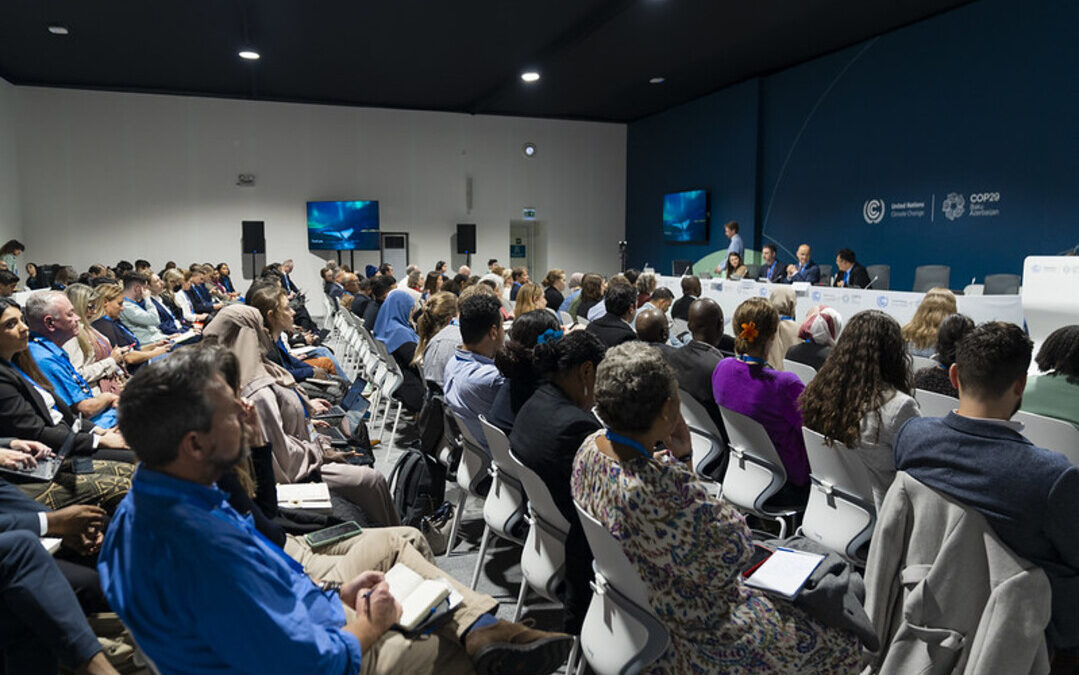India Demands Focus on Climate Finance as COP29 Shifts Toward Mitigation Goals
India demands equitable climate finance at CoP29, criticizing the shift from funding commitments to mitigation-focused discourse.
At the 29th session of the United Nations Framework Convention on Climate Change Conference of the Parties, India voiced its discontent with what it described as a persistent and troubling shift in focus from financial enablement to mitigation.
Addressing the plenary session on Thursday, Indian officials stressed the need for a balanced approach to climate action, one rooted in equity and the principles of the Paris Agreement.
Leena Nandan, secretary of the Ministry of Environment, Forest and Climate Change and deputy leader of the Indian delegation, expressed frustration over what she called a lack of commitment to providing adequate financing for climate initiatives.
“This CoP began with a focus on enablement through the establishment of New Collective Quantitative Goals for climate finance,” Ms. Nandan said. “However, as we near the end, the emphasis has again shifted to mitigation without sufficient discussion on how it will be funded.”
India’s position aligns with the concerns of the Like-Minded Developing Countries, a coalition that includes several nations from the Global South disproportionately affected by climate change.
The country’s delegation reiterated that achieving climate goals hinges on adherence to the Common But Differentiated Responsibilities and Respective Capabilities, or CBDR-RC, framework, which mandates wealthier nations to take the lead in providing resources.
Calls for Financial Commitment
India underscored the urgency of establishing a robust financial framework. It proposed a $1.3 trillion target for climate finance, including $600 billion in grant-based resources, emphasizing that these funds must not be conflated with investment goals or linked to fiscal measures like carbon pricing.
Without such funding, India warned, developing nations would struggle to formulate and implement their climate plans.
“Climate actions by developing countries must be tailored to their unique circumstances and priorities,” the Indian delegation stated, stressing that the process must be inclusive and equitable.
Opposition to Shifting Mitigation Goals
India raised concerns over attempts to broaden the scope of the Mitigation Work Programme, cautioning against the introduction of prescriptive targets for 2030, 2035, and 2050. Such measures, India argued, diverge from the language of the Paris Agreement and risk undermining global trust.
The delegation also called for acknowledgment of a mitigation gap in pre-2020 commitments by developed countries, noting with “strong concern” the increasing emissions from these nations. It opposed any unilateral measures that could hinder climate action in developing nations.
Redefining ‘Just Transition’
A contentious point for India was the interpretation of “just transition,” which it argued has been narrowly framed to imply domestic actions by individual governments. India maintained that a truly just transition requires developed countries to lead by providing resources and taking ambitious mitigation measures.
“The current text disregards the repeated inaction of developed nations, which constrains our ability to pursue sustainable development,” Ms. Nandan said, rejecting any reinterpretation of the concept outlined in prior agreements.
Adaptation and Global Stocktake
India also took issue with the Global Stocktake, or GST, process, contending that its primary purpose is to inform climate action, not prescribe specific outcomes. The delegation criticized the draft text for its lack of focus on finance and its excessive emphasis on mitigation.
Regarding adaptation, India highlighted the need for measurable indicators tied to means of implementation and opposed reliance on third-party data. It called for the establishment of a “Baku Road Map” to guide global adaptation efforts.
A Crucial Juncture
As CoP29 approaches its conclusion, India’s delegation urged a recalibration of priorities, emphasizing that financial enablement must take center stage.
“This is the Finance CoP — the Balancing CoP, the enabling CoP,” India stated. “If we fail here, we fail in the fight against climate change, and the responsibility lies squarely with those obligated to provide financial resources.”
India’s firm stance has added urgency to ongoing negotiations, reflecting the broader frustrations of developing nations seeking equity in global climate discourse. With the conference poised to set the course for future action, the challenge lies in achieving consensus without losing sight of the diverse needs of all parties.
Also Read:
India Calls on Wealthy Nations to Lead Just Transition at COP29


